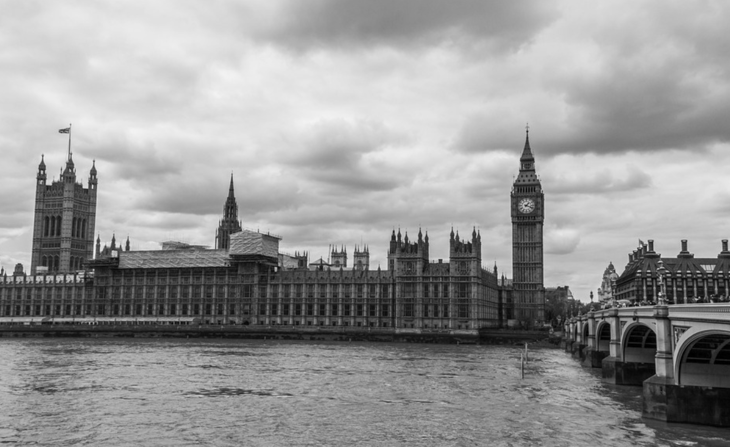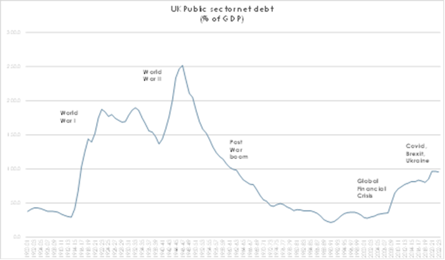 @Pixabay.
@Pixabay.
UK Chancellor of the Exchequer, Jeremy Hunt, has put money into investment zones and tax relief for small business, while acknowledging the situation with high interest rates.
Hunt’s second budget focused on ways to alleviate the current cost-of-living crisis in the UK as the country approaches an election later this year.
The UK has suffered from ‘sticky’ inflation over the past year. Earlier this year, the Bank of England (BoE) Monetary Policy Committee declined in a vote to lower the interest rate.
Hunt said he acknowledged high interest rates and their effects on the economy, adding that progress was being made around the issue of inflation.
In February, it was announced that the UK was in a technical recession. However, Hunt said that the Office for Budget Responsibility (OBR) predicted that the economy would grow by 0.8% this year, up from its previous prediction of 0.7%. The forecast for 2025 has also been raised to 1.9% from 1.4%
In the statement, which was relatively free of fireworks, Hunt said he would cut National Insurance (NI), introduce a new form of ISA for businesses, and sell the government’s remaining stake – 31% – in NatWest bank, which it bailed out in the 2008 crash. Hunt claimed the NI cut would increase GDP by 0.4%.
“Jeremy Hunt’s spring budget didn’t hold surprises for market participants. It is, for now, rather a ‘holding budget’,” said Kaspar Hense, Senior Portfolio Manager at RBC BlueBay Asset Management.
This was Hunt’s first financial announcement since the autumn statement last year.
“The growth forecast from the OBR, which is significantly higher than the BoE forecast, is helping the Conservative party to “pay” for these tax cuts."
The UK’s main opposition party recently announced a scrapping of a target to invest £28 billion annually in green energy and infrastructure schemes.
On top of the National Insurance cut, which was reported on in the press as a possible election sweetener, the budget focused on other areas, such as investment around business growth.
“The growth forecast from the OBR, which is significantly higher than the BoE forecast, is helping the Conservative party to “pay” for these tax cuts, which might be a bit optimistic,” said Hence. He added that, “the hope for a trickle-down economy is likely to end with the election in November”.
It was announced that, in April, the first Investment Zones in the North of England and the Midlands would be launched, which would include “a 10-year package of funding benefitting local skills, R&D, local infrastructure & business investment”.
Other changes include tax cuts for small business and the extension of the Recovery Loan Scheme and its renaming as the Growth Guarantee Scheme – which would “[help] 11,000 small and medium-sized enterprises (SMEs) to access the funding they need”.
The budget offered some signs of added investment in the UK with new zones and cuts designed to encourage businesses to open their purse strings. However, there was little in the way of infrastructure or financial services changes.
Last month, Nicholas Lyons, the former Lord Mayor of London, and the Chairman of Phoenix Group, spoke to Insurance Investor ahead of his keynote presentation at Insurance Investor Live | Europe in mid-March, saying that more work was needed on reforming the UK pension system to make it more dynamic and increase returns. This was something Lyons helped spearhead with the Mansion House Compact.
“The Spring Budget included several proposals designed to cajole UK savers and the financial services industry into investing more in the UK."
“The Mansion House reforms saw the Chancellor extrapolating all the work that I had done, which ended up with the Mansion House Compact and looking at defined benefit (DB) reforms and local government pension scheme reforms,” he said. “We have set in motion a debate that has significant ramifications for the pension industry.”
More specifically for insurers, there is worry – previously voiced by Sir Howard Davies, Chairman of NatWest – that the UK government and its leading institutional investors still aren’t investing enough in the country.
“The Spring Budget included several proposals designed to cajole UK savers and the financial services industry into investing more in the UK,” said James Alexander, CEO of UKSIF. “Forcing pension funds to disclose rates of UK investment or increasing the ISA allowance for investment in British firms, fails to resolve the policy barriers driving private capital abroad, particularly in sustainable industries, which are our biggest source of future growth.”
Alexander said the answer “to unlocking billions more in private investment” lied in demonstrating policy certainty and “ensuring [that] the UK has high-quality investable projects with long-term growth potential”.
Several examples of this hesitancy around investment have been showcased recently. The opposition Labour Party – which is widely expected to win the UK election later this year – has scrapped its pledge to borrow money to invest at least £28 billion per year in green projects.
This was coupled with news that the government’s flagship Levelling Up project, which was designed to invest in the UK’s less economically dynamic regions, has been slower in its rollout than hoped. The project had been publicised as an excellent investment opportunity for the City, particularly around public/private partnerships.
Hense warned that the UK’s economy was still going to be a volatile space no matter what movements were made from Westminster. “With the recent years of high inflation bond vigilantes have awoken and will not be put to rest easily,” he said.
“The UK fiscal position has worsened significantly over the last 16 years."
“With the government debt burden not as high as in the [US], but similar to France, wanting to see measures to bring debt levels down,” he added. “This is in contrast to the vast investment demands to fund the green transition, where geopolitical risk continuously imply higher defence spending and a healthcare system suited for an ageing society.”
Other reactions were more negative, warning of continuing issues, which the budget failed to address. “The UK fiscal position has worsened significantly over the last 16 years, with one shock after another raising government debt and reducing potential growth,” said Trevor Greetham, Head of Multi Asset, Royal London Asset Management. “Public sector debt has risen from around 35% of GDP in 2007 to close to 100% today, the highest level since the aftermath of World War II.”

Source: Royal London
Greetham said that strong nominal growth “is the best solution to high debt levels but achieving it is easier said than done”.
“Liz Truss threw caution to the wind with unfunded tax cuts that the markets and the Office for Budget Responsibility (OBR) didn’t find credible,” he added. “Jeremy Hunt is triggering OBR scepticism to a lesser degree, with the implausibly large real terms cuts in public spending he has pencilled in for future years in order to balance modest tax cuts.”
Greetham also said that financial markets would look through “all of this noise”, expecting whichever party forms the next government to “implement a new round of austerity or tax rises, unless action is taken to bolster potential growth against ongoing challenges including Brexit and demographics”.
He added that, from a multi asset perspective, a muted UK growth outlook strengthened the case for international diversification. “That said, the UK stock market is already very global, and its greater inflation resilience can offer a useful counterweight in portfolios to the growthy US market, as we saw in 2022,” he said.
"In order to compete with the US' Inflation Reduction Act and the EU's Green New Deal, the UK must remove the barriers."
Alexander also believed that the UK’s tight public finances were of utmost importance, but that they pointed to the importance of policy measures, which could be used to attract private investment into sustainability projects to recover growth.
“In order to compete with the US' Inflation Reduction Act and the EU's Green New Deal, the UK must remove the barriers [that] are currently driving private investment overseas in major growth areas of the future such as wind farms, hydrogen fuel, and EVs (Electric Vehicles),” he said.